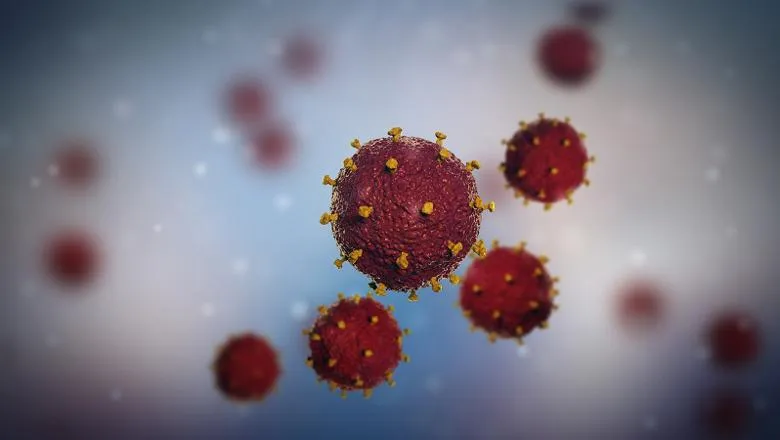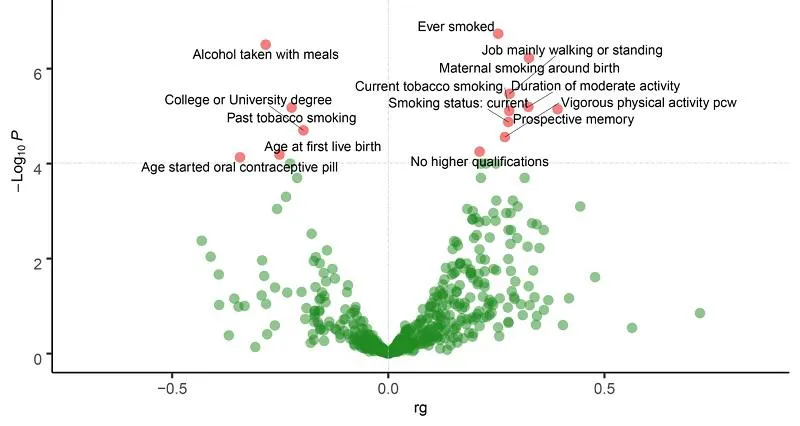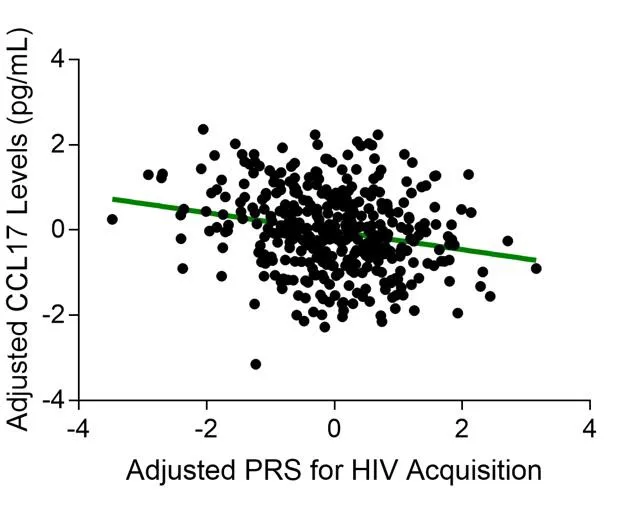Although it remains unclear what drives these associations we hope it may lead to new areas of research and ultimately interventions targeted to groups of people who will benefit the most
Co-first and corresponding author, Dr Timothy Powell, Research Fellow from the Institute of Psychiatry, Psychology & Neuroscience (IoPPN), King’s College London
24 February 2020
New study describes a genetic contribution to the risk of acquiring HIV-1
Researchers from King’s College London and Weill Cornell Medicine have shown that genetic mechanisms play an important role in the acquisition of the HIV-1 virus, whereby common genetic differences account for 28 – 42% of the variance in susceptibility to acquiring the virus at a population level.

HIV-1 is the most common type of immunodeficiency virus and around 38 million people currently live with HIV-1 worldwide. Previous studies have identified that individuals vary in how susceptible they are to contracting HIV-1, indicating that genetics could play a role in whether or not they become infected.
Published in Scientific Reports, the study analysed genetic data from a sample of 6,334 people who were HIV-positive and 7,247 who were HIV-negative, and found that HIV-1 acquisition could be partly attributed to genetic mechanisms. The researchers quantified this contribution, showing that genetic differences account for 28-42% of the variation in susceptibility to HIV-1 acquisition as seen across a population.
The risk of HIV-1 acquisition depends upon a complex combination of characteristics comprising of behavioural factors that can moderate exposure to the virus, as well as biological parameters that control the entry of the virus into the blood and its replication. In order to better understand the role these factors play in moderating HIV-1 contraction, the researchers investigated the relationship between the genetic mechanisms identified as instrumental in risk of HIV-1 acquisition, and genetic data on 500 behavioural, health and socioeconomic characteristics collected from 500,000 individuals in the UK Biobank cohort.

By comparing the two datasets the researchers identified significant correlations between the genetic predisposition to 9 of the 500 traits tested, and the genetic risk of HIV-1 acquisition, indicating a common genetic basis between them. These traits included self-reported smoking, excessive exercise, maternal smoking around birth, and lower levels of education.
By looking at a sample of 406 HIV-1-negative individuals, the researchers also used polygenic risk scores to study the relationship between genetic risk for HIV-1 acquisition and levels of immune messengers called cytokines in the blood. They constructed polygenic risk scores that capture genetic susceptibility for acquiring HIV-1 using genetic information from across the whole genome, and investigated how this correlated with levels of cytokines. The study found that a high polygenic risk score was correlated with lower blood levels of a specific cytokine called CCL17, which is thought to play a role in attracting immune cells to sites of infection.
Dr Powell said: ‘By analysing how genetic susceptibility to HIV-1 acquisition affects the immune system of HIV-1 negative individuals, we can model the effect that risk of acquisition has on immune proteins before the virus is contracted, which could help us to identify novel ways of studying, preventing, or halting the replication of HIV-1. Our work indicates the potential importance of CCL17, though further work is needed to examine the nature of this association, and whether or not CCL17 can act as useful biomarker for HIV-1 acquisition risk, or whether it could be useful in prevention.’

Last author, Douglas Nixon, Professor of Immunology in Medicine in the Division of Infectious Diseases at Weill Cornell Medicine, adds: ‘Although there have been huge advances in reducing HIV-1 infection rates with the introduction of pre-exposure prophylaxis (PrEP), there is still room for improvement, and the ultimate goal is still a vaccine or a cure. Although preliminary, our results could prove useful in furthering these goals.’
Previous research has explored how genetic variation can moderate the ability of HIV-1 to infect cells but this is the first research since 2013 that has studied common genetic risk factors affecting HIV-1 acquisition, particularly the cumulative effect of small genetic differences from across the genome.
In this study, modern population genetic tools have allowed us to explore the relationship between genetic susceptibility to HIV-1 acquisition and behavioural, cellular and immune traits.
Co-first author, Dr Rodrigo Duarte, from the IoPPN and a Visiting Instructor of Neuroscience in Medicine at Weill Cornell Medicine
Co-first author, Dr Rodrigo Duarte, from the IoPPN and a Visiting Instructor of Neuroscience in Medicine at Weill Cornell Medicine, said: ‘While we observed a genetic component to HIV-1 acquisition, we know that it may not necessarily be useful at predicting risk at the individual-level. Safer sex practices remain key in prevention, but we hope our work may provide an indication of where we should be looking in the future to develop novel strategies to prevent HIV-1 infection.’
Reference: Powell, T. et al. (2020) The behavioral, cellular and immune mediators of HIV-1 acquisition: New insights from population genetics. Scientific Reports. DOI: 10.1038/s41598-020-59256-0
Contact: Franca Davenport, Interim Senior Press Officer, Institute of Psychiatry, Psychology & Neuroscience, King's College London, franca.davenport@kcl.ac.uk
